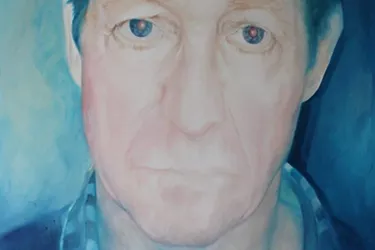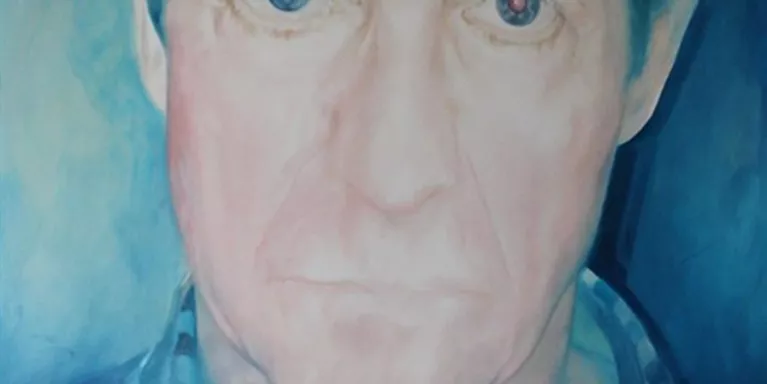My depression, my epilepsy and me
Simon @JudgeySan blogs about epilepsy, depression and asking for support at work.
I turned 40 in November 2011 and celebrated the occasion with a party. I was surrounded by my closest friends and my family, including my wife and two young daughters. I was an account director at a high-profile PR agency, where I managed half a dozen accounts and ran a number of small teams. It was a lot of responsibility, but I was proud of my ability to solve all sorts of problems without needing to bother my managers with them too often.
A couple of weeks later, and completely out of the blue, I had a severe epileptic seizure at my desk - full thrashing about, eyes rolling, foaming at the mouth, the works. As that evening went on, I had two more seizures of similar size, which resulted in my being hospitalised for a week, signed off work for a month and diagnosed with epilepsy.
Further episodes followed. Eventually, on a generous dosage of new anti-convulsant medication, I returned to work. And it wasn’t long before I noticed that things were going awry. My memory was failing me. I could have a conversation with someone and, by the time I’d returned to my desk – a matter of seconds – forgotten everything that had been said. And the tiredness… I was finding it hard to concentrate on anything for any length of time and practically falling asleep at my desk by 4 o’clock every day. I was making mistakes; schoolboy errors. A gnawing sense of anxiety set in with every email that I typed, every article that I wrote, and every conversation that I had.
I sought comfort in various epilepsy forums and notice boards online, looking for reassurance that this wasn’t just me, and that it did happen to other people. Others shared similar experiences and while it was good to know I wasn’t alone in this after all – it still proved cold comfort.
The thing is, I have been living with another problem for a lot longer than epilepsy.
I’d battled with depression on a number of occasions over the past 20 years or so, and found myself sinking to some real depths during this time. Following the epilepsy diagnosis, I was imploding magnificently.
By this time my wife had, of course, noticed that something was wrong and pressed me on it. At first I resisted and clammed up, as I always do when I feel the first signs of depression coming on; I realise that it’s counter-intuitive, but I never want to be perceived as a burden. In the end though I caved and told her everything. She helped me see these mistakes weren’t necessarily my fault.
After thinking on this further, I took a deep breath and called a meeting with my line manager and HR manager and told them of my concerns. I had to admit that, for now at least, I felt I could only manage a job where I was told what to do, rather than one where I was responsible for business decisions, for strategy, for people management. I wanted to be managed, not manage. Fortunately, my employers agreed to creating a new role where these expectations could be met.
However, the mistakes continued to build up, as did the stress that went with them. I had now lost my appetite, couldn’t sleep, and just wanted to curl up on the sofa and never leave home. I knew these feelings, having experienced them before, and I did not welcome them. The whole situation came to a head when I called another meeting with my line manager and told her that I could no longer cope. And then proceeded to start crying in her office.
Here was I, a 40 year-old father of two, sobbing in front of my boss in the office. Anyone looking in could see that something had gone seriously wrong. I had reached my lowest ebb ever.
I was signed off from work for four weeks. For a while there was still a crippling anxiety, a terrible knot in my stomach, at the thought of returning to work. But during this time I did my best to enjoy my family; taking the kids to school, cooking their meals. I caught up with books, films and games that I’d neglected. I walked. I spent evenings with my wife. Eventually I felt stronger, or strong enough at least, to return to work.
Now, almost three years on, I’ve had no more seizures – although it’s likely I’ll always be on medication, and I take a lot more notes than ever before to compensate for my crappy memory.
I‘ve felt my confidence slowly return, and a course of cognitive behavioural therapy has armed me with a series of techniques that I can use to tackle any negative thoughts I might have.
I’m not going to lie, I still have down days, full of self-loathing and disappointment; days where I question what I’m doing, where I have to summon up the will to leave the house. The knot’s still there now and then, and I have the occasional sleepless night, but all of these are fewer and less frequent than before.
I know I’m extremely blessed in having a supportive wife who understands and is used to my depression, and that I work for a company that really looks after its employees. I know that not everyone can be that lucky.
What I would say though, is that sometimes, as much as you don’t want to, it can help to listen to those who genuinely have your best interests at heart
And sometimes, although it’s hard, it can pay to admit that you’re out of your depth, that you can no longer cope, that you’ve reached the end of your endurance.
There really is no shame in doing this and sometimes – and once again I appreciate just how fortunate I am - it can all work out in your favour.


Information and support
When you’re living with a mental health problem, or supporting someone who is, having access to the right information - about a condition, treatment options, or practical issues - is vital. Visit our information pages to find out more.
Share your story with others
Blogs and stories can show that people with mental health problems are cared about, understood and listened to. We can use it to challenge the status quo and change attitudes.

















